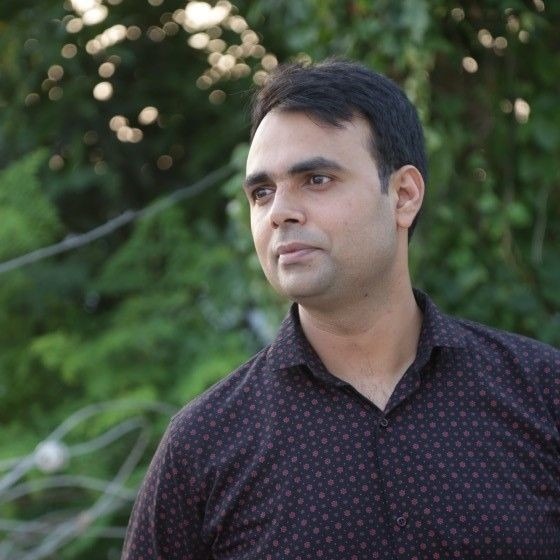" श्रमेण हि जयो वरः "
"Victory comes through dedicated effort"
In the high-stakes arena of engineering entrance examinations, JEE Main stands as a pivotal gateway to India's premier technical institutions. With
JEE Main 2025 approaching, these final 15 days can make a significant difference in your preparation journey. According to NTA data, over 11.5 lakh students appeared for JEE Main 2024, with only 20% qualifying for
JEE Advanced. The upcoming JEE Main 2025 BE/B Tech examinations are scheduled for January 2025 (Session 1) and April 2025 (Session 2).
The Golden Rule: No New Topics
Research from IIT Delhi's assessment cell shows that 87% of successful candidates focused solely on revision in their final weeks. Your foundation is already built - now is the time to reinforce it, not construct new floors.
Strategic Mock Test Approach
- JEE Main 2019 (April): Focus on numerical value questions
- JEE Main 2018 (April): Strong emphasis on conceptual clarity
- JEE Main 2017: Known for traditional problem-solving
- JEE Main 2016: Excellent for matrix matching questions
- JEE Main 2015: Notable for assertion-reason type questions
Paper/Error Analysis: Your Personal Growth Metric
Maintain an error log documenting:
- Concept gaps
- Calculation mistakes
- Time management issues
- Pattern recognition failures
A study by known Test Platform Services revealed that students who maintained detailed error logs showed a 40% improvement in accuracy.
Previous Year Questions (PYQ'S): Your Success Blueprint
Try to cover as much as you can but first do focus areas based on question frequency (2020-2024):
- Physics: Mechanics (35%), Electromagnetism (25%)
- Chemistry: Physical Chemistry (40%), Organic Chemistry (35%)
- Mathematics: Calculus (30%), Algebra (25%)
Regulate The Body Clock
- Align your study schedule with exam timing:
- Wake up at 5:30 AM
- Study during peak exam hours (9 AM - 12 PM)
- Take strategic breaks
- Sleep by 10:30 PM
Mental Conditioning Through Affirmations
Practice these proven affirmations:
- "I am well-prepared and confident"
- "Each question is an opportunity to showcase my knowledge"
- "I remain calm and focused under pressure"
Implement the 4-7-8 breathing technique during breaks:
- Inhale for 4 seconds
- Hold for 7 seconds
- Exhale for 8 seconds
Test-Analyze-Revise & Repeat Cycle
Follow the 50-20-30 rule:
50% time on mock tests
20% on analysis
30% on targeted revision
Frequently Asked Questions
Should I study new topics if I find gaps?
No, focus on strengthening existing knowledge. Statistics show that 92% of successful
JEE candidates spent their final days reinforcing what they already knew rather than learning new concepts. If you encounter a gap, mark it for future reference but continue with your revision plan.
How many hours should I study daily?
Maintain 8-10 quality hours with proper breaks. Research indicates that studying beyond 10 hours significantly reduces retention capacity. Follow the 50-10 rule: 50 minutes of focused study followed by a 10-minute break. This maximizes cognitive function and prevents burnout.
Is solving complete mock tests necessary?
Yes, attempt at least one full mock test daily. Data from top coaching institutes shows that students who took daily mock tests in the last 15 days scored 15-20% higher than those who didn't. Focus on timing and simulate exact exam conditions.
Should I discuss problems with peers?
Limited discussion of complex problems is beneficial. Restrict group discussions to 30 minutes daily. Choose 2-3 challenging questions to discuss, but avoid lengthy debates. Studies show that focused peer learning can improve understanding by up to 40%.
What if I can't sleep properly?
Practice the 3-3-3 technique: name three things you see, three sounds you hear, and move three parts of your body. This helps calm anxiety. Maintain a cool room temperature (20-22°C) and avoid caffeine after 4 PM. Poor sleep can reduce next-day performance by up to 30%.
Is it okay to skip meals for studying?
Never compromise on nutrition - it affects performance. Research shows that students who maintain regular meal times perform 25% better in exams. Include brain foods like nuts, fruits, and complex carbohydrates. Stay hydrated with 2-3 liters of water daily.
How do I handle exam anxiety?
Besides breathing exercises and positive affirmations, use the STOP technique:
S: Stop what you're doing
T: Take a deep breath
O: Observe your thoughts
P: Proceed mindfully
Studies show this reduces anxiety by 65% in test conditions.
Conclusion
"सा विद्या या विमुक्तये"
"True knowledge is that which liberates"
Let these final days be your period of liberation – from doubt, from anxiety, and from uncertainty. Your preparation journey of months has built a strong foundation. Now is the time to showcase your potential with confidence and clarity. Remember, every question you solve brings you closer to your goal. Stay focused, stay calm, and let your preparation speak through your performance.
These final days are about refinement, not revolution. Your preparation journey of months or years has brought you here - now is the time to sharpen your sword, not forge a new one.

